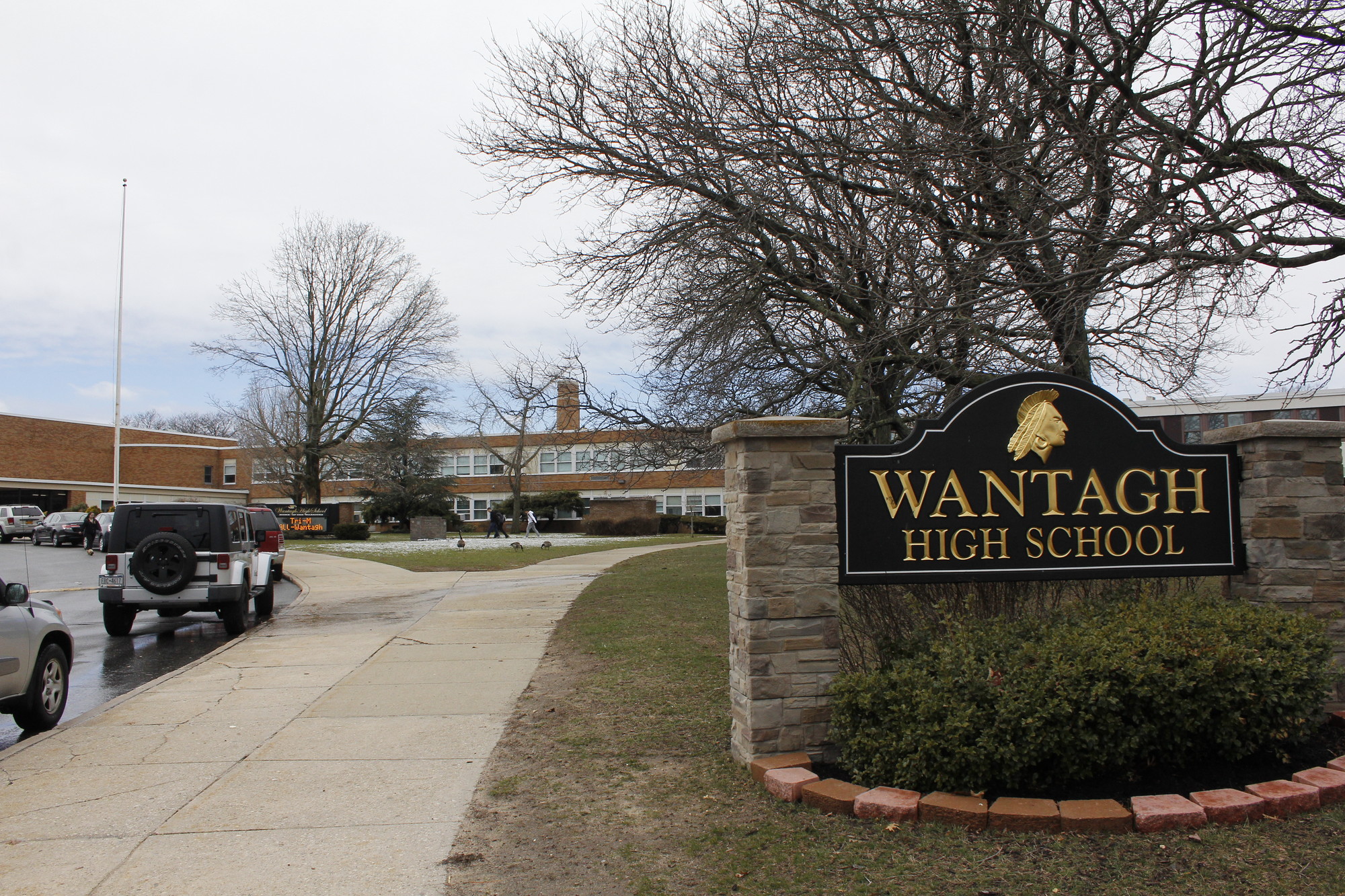Public, district debate reserves
Wantagh leaders say funds are at healthy levels; others say they’re too high
The Wantagh School District has about $15.25 million in the bank, split up among various reserve funds. Some residents say that total is too high. District officials and auditors say the reserves keep Wantagh schools in good fiscal health.
Years of questioning of reserve fund levels by members of the public led the Board of Education to hold a presentation on its reserve funds following the regular meeting agenda on Sept. 18. The district has various accounts, including those for worker’s compensation payments, retirement costs and unemployment insurance. There is also its fund balance, which is not designated for a specific purpose.
“We want to stress how important it is to have reserves,” said Adriana Silver, the assistant superintendent for business. “We’re able to plan ahead.”
In August, the Board of Education approved a fiscal management policy that sets targets for its various reserve funds. Silver said that auditors from state Comptroller Tom DiNapoli’s office have cited several districts for lacking a financial management plan. Wantagh officials wanted to be proactive in creating one, she said.
Mark Semo, a financial analyst for the district, said that DiNapoli wants districts to justify why reserve funds are kept at certain levels. Marianne Van Duyne, of R.S. Abrams, the district’s external auditor, added that the amount of money Wantagh has in each account was reasonable.
The district’s external auditor, required by the state, focuses on its annual financial statements. There is also an internal auditor, which reviews financial polices, procedures and risks, and a claims auditor, which examines every payment a district makes.
The district also has an audit committee, made up of school officials and community members.
Van Duyne noted that money in certain reserve accounts can only be used for specific purposes. There is also oversight on how this money is used, she said, because Board of Education approval is typically required to spend or transfer funds. “It’s not a haphazard decision to throw money into reserves,” she said. “Reserves are a good thing, as long as they’re used wisely.”
Silver noted that, for example, there was a $350,000 tax certiorari reserve created when Nassau County tried to have school district pay tax refunds. With the courts ultimately deciding that the burden would remain with the county, Wantagh closed the account, and the money was applied to the 2014-15 budget.
Last year, voters approved the creation of a capital reserve fund, not to exceed $5 million, for various building projects. So far there is close to $2.3 million in the account, which includes budget surplus from last year and money that was not needed in other reserve accounts.
School officials explained that this saves taxpayers from having to pay interest if the district were to borrow money for these repairs.
While residents commended the board for creating a fiscal management plan, some said that the amount of money in reserves is too high. “It’s a baby step,” said Jude Netto. “You have a long way to go. This is a good start.”
Netto emphasized that no one believes money is being misspent, but the district might be over-prepared. “There are some of us who believe that perhaps they are too healthy,” he said of the reserves. “We’re just debating as to where the cutoff should be.”
Netto added that reserves have increased, on average, about $2 million per year over the past several years. While money has been spent from various accounts, he said, total reserves have gone up.
Bob Hasteadt said that based on total reserves, the district has overtaxed residents. “That means you’re sitting on $2,000 per household,” he said.
Every year when the budget newsletter comes out, Hasteadt noted, the district requests money for a wide variety of programs, but never mentions to taxpayers that it needs funds to build reserves.
According to Silver, Wantagh finished the 2013-14 school year with a budget surplus of $4 million, in addition to $600,000 in unexpected revenue. The district’s budget for this year is $75.48 million.
There is no legal limit on how much a district can have in reserves. There is a restriction on the amount that can be kept in the unassigned fund balance, which is often referred to as a “rainy day fund.” That limit is 4 percent of the budget. Wantagh, with $3 million in the account, is at but not over the limit.
Netto said that the state law sets a maximum of 4 percent, but that does not mean a district has to have that much money unassigned.
Lou Pizzileo, a certified public accountant who sits on the district’s audit committee, defended the practice. The school district, he said, is essentially a $75 million business. “The margin of error that we have is 4 percent,” he said. “That’s pretty reasonable.”
Pizzileo also likened district finances to a house whose owner keeps money available in case of an emergency. Silver added that a cushion is necessary for unanticipated expenses, such as building repair.
District officials also noted that the $15.25 million in total reserves includes $3.475 million in surplus that is being applied to this year’s budget.
Anthony Greco, president of the Board of Education, said that the discussion of reserves was necessary, because community members have been questioning the amounts for some time. He said he hoped the new plan adopted by the board would keep the funds in check. “The reserves have gotten larger,” he said, “so we’ve implemented a new policy.”

 49.0°,
Fair
49.0°,
Fair 




